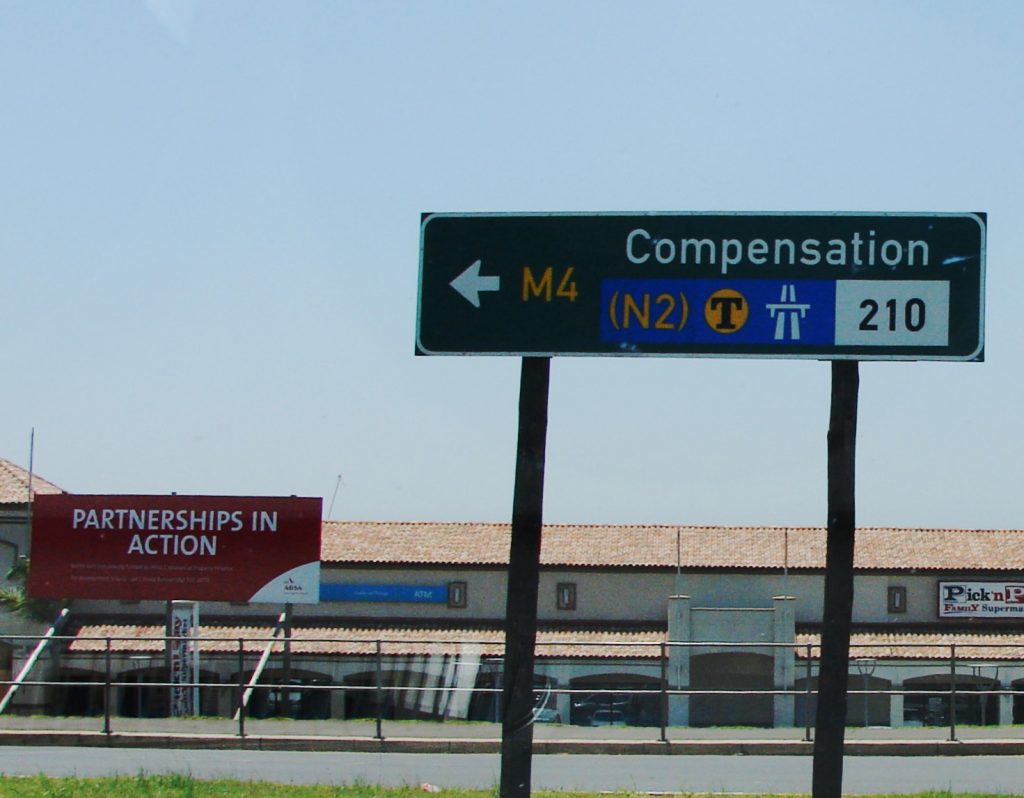 Peanuts and cracker jacks are two cornerstones of the game of baseball. However, surgery is not. Yet, when one little leaguer got struck by a baseball during practice, the league’s insurer tried to get out of picking up some of his medical bills. The Louisiana Third Circuit Court of Appeal, however, was not going to let the insurance company off so easily.
Peanuts and cracker jacks are two cornerstones of the game of baseball. However, surgery is not. Yet, when one little leaguer got struck by a baseball during practice, the league’s insurer tried to get out of picking up some of his medical bills. The Louisiana Third Circuit Court of Appeal, however, was not going to let the insurance company off so easily.
On June 1, 2010, nine-year-old Michael Folley was hit in the mouth by an errant baseball during his baseball team’s practice. On May 20, 2011, Tonya Csaszar, on behalf of her son Michael, brought suit against Nationwide Insurance, alleging that Michael would require future medical treatments and surgeries as he got older. Nationwide, having paid some medical expenses, denied further coverage based on a provision of the policy limiting coverage to medical expenses incurred within three years of the accident. Nationwide moved for summary judgment arguing coverage for Michael under the policy had terminated. The Judicial District Court for the Parish of LaFayette denied the motion and Nationwide appealed.
The parties disputed when the injuries were “incurred” and thus subject to coverage. Nationwide argued that there was no ambiguity in the meaning of “incurred” in the language of the policy and any medical treatment beyond the three-year cap was not subject to coverage. The Plaintiffs contested however that due to Michael’s young age, he would need additional medical treatment to accommodate physical changes as he grew. Nationwide’s policy did not define the word “incur.”
 Louisiana Personal Injury Lawyer Blog
Louisiana Personal Injury Lawyer Blog


 Sometimes when a plaintiff is awarded damages at trial he or she may believe that the damage amount does not match the injury he or she incurred. When this situation happens, what can a plaintiff do to challenge the damage award? And how easy is it get an increase in the damages amount? A recent First Circuit Court of Appeal case involving a Terrebonne Parish man provides guidance towards answering these questions.
Sometimes when a plaintiff is awarded damages at trial he or she may believe that the damage amount does not match the injury he or she incurred. When this situation happens, what can a plaintiff do to challenge the damage award? And how easy is it get an increase in the damages amount? A recent First Circuit Court of Appeal case involving a Terrebonne Parish man provides guidance towards answering these questions. It’s always bad when you get injured. But it is even worse when you have no insurance coverage for that injury. Recently, a St. Tammany Parish man experienced both incidents when he was injured on the job and realized that his employers were not covered by workers’ compensation insurance.
It’s always bad when you get injured. But it is even worse when you have no insurance coverage for that injury. Recently, a St. Tammany Parish man experienced both incidents when he was injured on the job and realized that his employers were not covered by workers’ compensation insurance. Often, the facts of a lawsuit are unclear. One strategy that lawyers often use to prove their version of events is to use an expert witness to corroborate their side’s story. Expert witnesses are individuals who possess knowledge in a field or area that the average person knows little to nothing about. Frequently, both sides in a lawsuit end up utilizing experts who often times have differing opinions about the facts surrounding the lawsuit. But how does a judge or jury determine which expert is correct? Recently, the Fifth Circuit Court of Appeal for the State of Louisiana addressed these questions in a workers’ compensation case.
Often, the facts of a lawsuit are unclear. One strategy that lawyers often use to prove their version of events is to use an expert witness to corroborate their side’s story. Expert witnesses are individuals who possess knowledge in a field or area that the average person knows little to nothing about. Frequently, both sides in a lawsuit end up utilizing experts who often times have differing opinions about the facts surrounding the lawsuit. But how does a judge or jury determine which expert is correct? Recently, the Fifth Circuit Court of Appeal for the State of Louisiana addressed these questions in a workers’ compensation case. A primary concern that all business owners have is how to insulate themselves from any improper actions that their business engages in. Without some mechanism to separate the actions of the business from the business owner, a business owner would be personally liable for the business’s actions and could face legal claims against him or her for actions that the business engaged in. States, recognizing this problem, created many forms of corporate structures with varying levels of liability protection. Examples of such corporate structures are limited liability companies (L.L.C.), professional corporations (P.C.), and C corporations. While these, and other types of corporate structures, provide business owners with insulation from liability, business owners could still be personally liable for their company’s actions if those actions fall under a narrow set of circumstances. Recently, the Louisiana Supreme Court addressed whether one of these narrow circumstances occurred when determining whether an owner of a home construction company was personally liable for the actions of the company.
A primary concern that all business owners have is how to insulate themselves from any improper actions that their business engages in. Without some mechanism to separate the actions of the business from the business owner, a business owner would be personally liable for the business’s actions and could face legal claims against him or her for actions that the business engaged in. States, recognizing this problem, created many forms of corporate structures with varying levels of liability protection. Examples of such corporate structures are limited liability companies (L.L.C.), professional corporations (P.C.), and C corporations. While these, and other types of corporate structures, provide business owners with insulation from liability, business owners could still be personally liable for their company’s actions if those actions fall under a narrow set of circumstances. Recently, the Louisiana Supreme Court addressed whether one of these narrow circumstances occurred when determining whether an owner of a home construction company was personally liable for the actions of the company. When an employee is injured in the course of his or her job, then the employee will receive wage replacement and medical benefits in the form of workers’ compensation. Workers’ compensation takes the place of a lawsuit an employee can bring when he or she is injured on the job by someone’s negligence. Because employers are responsible for providing a safe work environment, it stands to reason that employers are responsible when that environment is unsafe. While workers’ compensation provides a necessary service to injured workers, there are always those who would try to take advantage of the system. This struggle to try to provide for those who are legitimately injured while at work and deny claims for those who try to defraud the system gives rise to a complex body of law. One reoccurring issue that often surfaces in workers’ compensation cases is whether an employee is injured while on the job. Recently, the Fifth Circuit Court of Appeal examined this issue when determining whether an employee for a pool table installing company injured his back while on the job.
When an employee is injured in the course of his or her job, then the employee will receive wage replacement and medical benefits in the form of workers’ compensation. Workers’ compensation takes the place of a lawsuit an employee can bring when he or she is injured on the job by someone’s negligence. Because employers are responsible for providing a safe work environment, it stands to reason that employers are responsible when that environment is unsafe. While workers’ compensation provides a necessary service to injured workers, there are always those who would try to take advantage of the system. This struggle to try to provide for those who are legitimately injured while at work and deny claims for those who try to defraud the system gives rise to a complex body of law. One reoccurring issue that often surfaces in workers’ compensation cases is whether an employee is injured while on the job. Recently, the Fifth Circuit Court of Appeal examined this issue when determining whether an employee for a pool table installing company injured his back while on the job. Accidents can happen at any time, even at work. Sometimes these accidents can aggravate a pre-existing injury. In a claim for workers’ compensation benefits, employers may use the existence of an old injury to deny payment of benefits despite a clear work accident with medical repercussions. This was the case for a government employee in Winnsboro, Louisiana.
Accidents can happen at any time, even at work. Sometimes these accidents can aggravate a pre-existing injury. In a claim for workers’ compensation benefits, employers may use the existence of an old injury to deny payment of benefits despite a clear work accident with medical repercussions. This was the case for a government employee in Winnsboro, Louisiana.  A common tactic of defendants is to attempt to remove a case from state court to Federal Court if there is the slightest indication that such removal might be proper. Depending on the case, however, it may be more advantageous to a plaintiff to keep the case in state court. Without even concerning the merits of the case, a battle ensues costing time and money. In any case, where the Federal Government is even remotely involved, removal will likely be an issue. How can a plaintiff successfully keep their lawsuit in state court when the Federal Government is involved? Recent Louisiana asbestos litigation provides at least one way.
A common tactic of defendants is to attempt to remove a case from state court to Federal Court if there is the slightest indication that such removal might be proper. Depending on the case, however, it may be more advantageous to a plaintiff to keep the case in state court. Without even concerning the merits of the case, a battle ensues costing time and money. In any case, where the Federal Government is even remotely involved, removal will likely be an issue. How can a plaintiff successfully keep their lawsuit in state court when the Federal Government is involved? Recent Louisiana asbestos litigation provides at least one way.  The government owes a duty to its citizens to serve their best interests. But what happens when the government breaches that duty? Can we, as citizens, sue our government for perceived wrongs it has committed? Can we recover damages? This is an especially critical issue when it comes to a government’s responsibility to its citizens in times of natural disasters, as illustrated by the following case.
The government owes a duty to its citizens to serve their best interests. But what happens when the government breaches that duty? Can we, as citizens, sue our government for perceived wrongs it has committed? Can we recover damages? This is an especially critical issue when it comes to a government’s responsibility to its citizens in times of natural disasters, as illustrated by the following case.  There are many questions involved in filing and pursuing a lawsuit. How do I file? When must I file? Against whom do I file it? What amount of damages do I seek? Most people are unaware that there are different types of damages. An attorney’s trial strategy not only plays a critical role in
There are many questions involved in filing and pursuing a lawsuit. How do I file? When must I file? Against whom do I file it? What amount of damages do I seek? Most people are unaware that there are different types of damages. An attorney’s trial strategy not only plays a critical role in